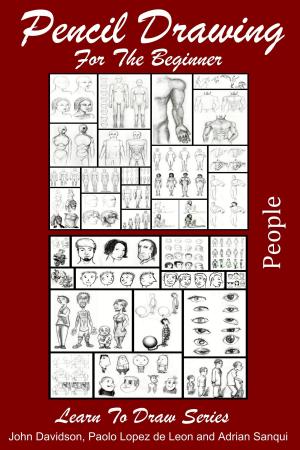| Author: | John Davidson | ISBN: | 9781311742681 |
| Publisher: | JD-Biz Corp Publishing | Publication: | January 14, 2014 |
| Imprint: | Smashwords Edition | Language: | English |
| Author: | John Davidson |
| ISBN: | 9781311742681 |
| Publisher: | JD-Biz Corp Publishing |
| Publication: | January 14, 2014 |
| Imprint: | Smashwords Edition |
| Language: | English |
Bestselling author John Davidson presents "Bees - For Kids – Amazing Animal Books For Young Readers". Beautiful Pictures and easy reading format will help children fall in love with Bees This is one of over 30 books in the Amazing Animal Books for Young Readers Series.
The series is known as one of the most beautiful on tablets. The pictures look great even in black and white and are excellent on the full color tablets.
Lots of facts and photos will help your children learn about this wonderful animal. Children are given a well-rounded understanding of bees: anatomy, feeding habits and behavior.
*** You and your kids will love learning about bees
Table of Contents
1. What Are Bees?
2. Facts About Bees
3. The Life Cycle of a Bee
4. Why Are Bees So Important to Humans?
5. Types of Bees
6. Bumble Bees
7. Yellow Jackets
8. Wasps
9. The Bee Hive
10. The Honey Bee Colony
11. The Royal Queen
12. Bee Keeping
13. Tips for Preventing Attacks
14. Harvesting Honey
15. What is Pollen and Pollination?
16. Flowers That Attract Bees
17. Credits of Photography
Facts about bees
1.A honey bee is not born knowing how to make honey, they are taught by more experienced bees.
2.A honey bee will make only 1/12 of a teaspoon of honey in its lifetime.
3.Are the only insects that produce food eaten by humans.
4.Honey bees must consume 16-18 pounds of honey to make each pound of beeswax.
5.Bees have been around 30 million years.
6.Over 1000 bee stings are considered to be fatal.
7.Honey bees are not native to the Americas.
8.Bees are cold blooded.
9.Bacteria cannot grow in honey because of the natural preservatives.
10.Bears prefer to eat the bee larvae rather than the honey.
11.Bees communicate through smells and dances.
12.Bees can fly up to 15 miles per hour.
13.A hive will fly almost 100,000 miles to collect 1kg of honey.
14.It would only take one ounce of honey to feed a bee and if possible give them enough energy to fly all the way around the world.
Bestselling author John Davidson presents "Bees - For Kids – Amazing Animal Books For Young Readers". Beautiful Pictures and easy reading format will help children fall in love with Bees This is one of over 30 books in the Amazing Animal Books for Young Readers Series.
The series is known as one of the most beautiful on tablets. The pictures look great even in black and white and are excellent on the full color tablets.
Lots of facts and photos will help your children learn about this wonderful animal. Children are given a well-rounded understanding of bees: anatomy, feeding habits and behavior.
*** You and your kids will love learning about bees
Table of Contents
1. What Are Bees?
2. Facts About Bees
3. The Life Cycle of a Bee
4. Why Are Bees So Important to Humans?
5. Types of Bees
6. Bumble Bees
7. Yellow Jackets
8. Wasps
9. The Bee Hive
10. The Honey Bee Colony
11. The Royal Queen
12. Bee Keeping
13. Tips for Preventing Attacks
14. Harvesting Honey
15. What is Pollen and Pollination?
16. Flowers That Attract Bees
17. Credits of Photography
Facts about bees
1.A honey bee is not born knowing how to make honey, they are taught by more experienced bees.
2.A honey bee will make only 1/12 of a teaspoon of honey in its lifetime.
3.Are the only insects that produce food eaten by humans.
4.Honey bees must consume 16-18 pounds of honey to make each pound of beeswax.
5.Bees have been around 30 million years.
6.Over 1000 bee stings are considered to be fatal.
7.Honey bees are not native to the Americas.
8.Bees are cold blooded.
9.Bacteria cannot grow in honey because of the natural preservatives.
10.Bears prefer to eat the bee larvae rather than the honey.
11.Bees communicate through smells and dances.
12.Bees can fly up to 15 miles per hour.
13.A hive will fly almost 100,000 miles to collect 1kg of honey.
14.It would only take one ounce of honey to feed a bee and if possible give them enough energy to fly all the way around the world.















